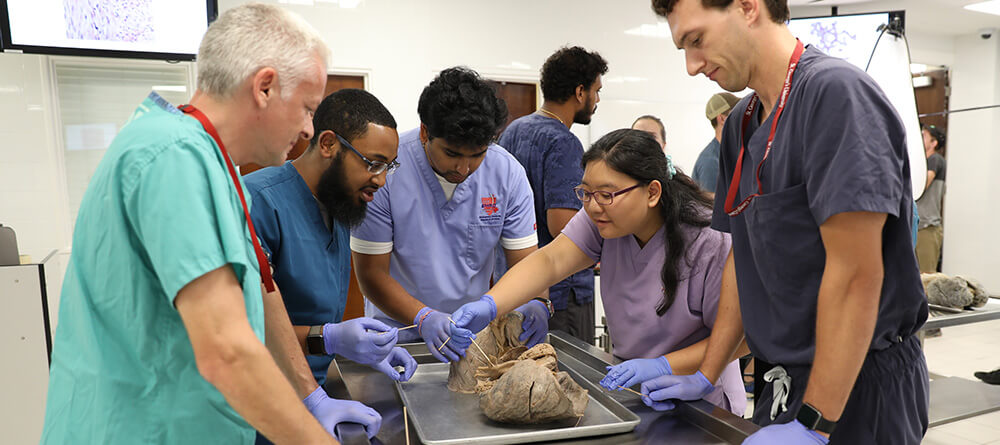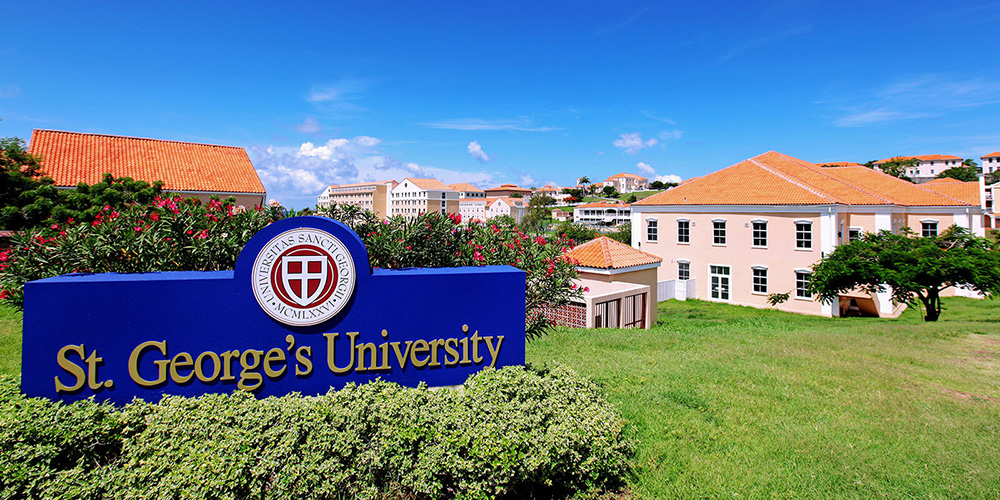Choosing where to attend medical school might be one of the most important decisions you will make in your career. As you weigh all of the potential factors, do not forget to check out the medical school’s accreditation. Accreditation is a voluntary process of quality assurance in which schools and programs are evaluated under established standards. The medical school accreditation process promotes institutional and programmatic improvement and requires that schools demonstrate that their programs prepare graduates to enter the next stage of their training and career.
So what do you need to know about medical school accreditation in general, and more specifically accreditation for Caribbean medical schools like St. George’s University (SGU) School of Medicine?
Well, if you’re not feeling quite confident about the world of medical school accreditation, don’t worry. We’ve covered some of the most frequently asked questions about accreditation in general and about SGU’s status and accreditation.
Medical school accreditation FAQs
We spoke with Laura Bruno, SGU’s VP of Student Recruitment, to get a better understanding of medical school accreditation and to take a closer look at SGU accreditation in particular.
Why is accreditation so important?
The accreditation process is a process in which schools are evaluated to ensure they meet a set of educational and training standards. “Accreditation is important because it demonstrates that a medical school has met these established standards,” Bruno says.
“Accreditation is important because it demonstrates that a medical school has met these established standards.”
Proper accreditation and approvals provide students with the essential privileges and pathways to become fully licensed and practicing physicians. Proper accreditation becomes even more critical for students considering attending a Caribbean medical school, since not all Caribbean medical schools are the same.
Medical schools in the Caribbean have varying accreditation levels, curriculum strengths and opportunities available to students. For example, SGU’s accreditation and recognitions ensures that SGU students have access to the United States Medical Licensing Examination (USMLE) and US federal loans (eligible US citizens and US permanent residents), can participate in the National Residency Matching Program (NRMP) and can apply for licensure to practice medicine in the United States.
Accreditation is not just a one-time declaration of a school’s effectiveness—it’s actually an ongoing process. “Accreditation fosters institutional and programmatic improvement and requires schools to continually demonstrate that their programs prepare graduates to enter the next stage of their training and career,” Bruno explains.

This change, she notes, impacts all international medical schools and medical school accrediting agencies. Prospective students should confirm that any school they are considering attending is accredited by an accrediting body that is recognized by WFME past 2024.
“Accrediting bodies that are currently approved by WFME will need to maintain, and in some cases, renew their recognition status prior to 2024, and other accrediting bodies are in the process of pursuing recognition from WFME,” Bruno says.
What is SGU’s accreditation status?
SGU program is accredited by the Grenada Medical and Dental Council (GMDC). The GMDC has been reviewed by the US National Committee on Foreign Medical Education and Accreditation (NCFMEA), which is comprised of a panel of experts organized by the US Department of Education.
The committee assembled by the NCFMEA has determined that the GMDC uses standards that are comparable to the ones used to accredit medical schools in the US, such as the Liaison Committee on Medical Education (LCME).
“Based on its accreditation from the GMDC, the SGU School of Medicine can participate in the US Department of Education Federal Direct Loan Program, which means eligible SGU students can receive federal student loans,” Bruno adds. Additionally, the Grenada Medical and Dental Council (GMDC) was recently recognized by the World Federation of Medical Education (WFME).
“… The SGU School of Medicine can participate in the US Department of Education Federal Direct Loan Program, which means eligible SGU students can receive federal student loans.”
WFME’s approval, which will last through September 2032, ensures that SGU students will continue to have access to the USMLE and US federal loans (eligible US/US PR students only), to participate in the National Residency Matching Program, and apply for licensure to practice medicine in the United States.
How do I know if a Caribbean medical school maintains standards similar to US medical school?
The US National Committee on Foreign Medical Education and Accreditation (NCFMEA) keeps close tabs on the standards set by the LCME for US medical schools and is tasked with reviewing the accrediting bodies a foreign country uses to accredit its medical schools. If an accrediting body that accredits medical schools outside the US is deemed to be comparable in its approach and rigor to the LCME, the NCFMEA will recognize that accrediting body. That recognition signifies that the institution meets the same standards as accredited medical schools in the US.
“SGU’s accrediting body is recognized by NCFMEA” Bruno shared.

What changes are coming related to international medical school accreditation?
SGU is proud of its continuous accreditation as an international medical school. But some notable changes have been underway for international medical institutions at large.
“Starting in 2024, international medical school graduates applying for the Educational Commission for Foreign Medical Graduates (ECFMG) certification must be a student or graduate of a medical school that is accredited by an agency officially recognized by the World Federation for Medical Education (WFME),” Bruno explains.
This change, she notes, impacts all international medical schools and medical school accrediting agencies. Prospective students should confirm that any school they are considering attending is accredited by an accrediting body that is recognized by WFME past 2024.
“Accrediting bodies that are currently approved by WFME will need to maintain, and in some cases, renew their recognition status prior to 2024, and other accrediting bodies are in the process of pursuing recognition from WFME,” Bruno says.
Students considering SGU can rest easy knowing its accrediting body, the GMDC, has followed suit and been granted the proper WFME recognition through September 2032.
Find your medical school fit
Now that you’ve learned more about SGU accreditation by exploring the international medical school accreditation process at large, you’re better equipped to find the school that will help you build the foundation for a thriving medical career.
While it should certainly be at the top of your list, your criteria for finding the right medical school should include more than just accreditation. Learn more about what else you should be evaluating by reviewing our article “How to Find the Best Medical Schools in the Caribbean.”
For more information on the topic, visit the SGU Accreditation page.
*This article was originally published in September 2022. It has since been updated to include information relevant to 2024.

